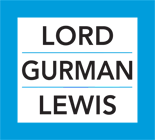Should I Send a “Thank You” Note?
by Andrew Gurman
A controversial topic in recruiting is whether a candidate should send a “thank you” note after an interview. My thinking has evolved. First, I find a distinction between the recruiter/headhunter context and one in which an external recruiter is not involved.
In the external recruiter context, I historically advised candidates not to send thank you notes post-interview but instead to let me know whether they were interested so that I could reaffirm a candidate’s interest in those cases; this affirmation of interest would serve as a thank you note. But I came to learn that some clients wanted to see thank you notes directly from candidates. And I realized that if I had multiple candidates interviewing for the same position, some might send thank you notes, which might disadvantage candidates who opted not to send them. And there was an article in the Wall Street Journal a few years ago strongly endorsing their use. Lately, I have generally advised candidates to send thank you notes, except with clients that I know place no emphasis on them.
The reason that I am concerned about candidates sending thank you notes is that they can end or harm someone’s candidacy. They effectively serve as writing samples. There can be technical errors, such as a misspelled name (or other misspelling) or a grammatical error, or judgment errors, such as writing too much about something discussed during the interview or trying to correct something that a candidate said (although that can be important in some cases).
In the context of a candidate interviewing on their own with an employer, I would recommend sending a thank you note. I think there is too much risk with not sending one given that thank you notes are often expected post-interview and in the absence of knowledge of whether the interviewers would care. Also, not sending a thank you note after what an employer felt was an excellent interview might make them think twice about whether you were actually interested—even if the candidate expressed significant interest during the interview.
If you send a thank you note, here are a few other considerations:
- Timing: if the employer requested a writing sample or other information during the interview, then try to send one the same day or the following day. That message can also serve as your thank you note. Even if no document is requested, sending a thank you note within a day or two is generally recommended. If you do wait a day or so, you may hear back from the employer in the interim. If the news is positive, you can simply respond with interest in scheduling a follow-up interview (or perhaps expressing excitement about an offer).
- How: email is most common and increases the probability that the employer will see it. A hand-written note sent by mail offers an intimate touch and can set a candidate apart from others given that it is uncommon, but the employer may not see it, or it may arrive well after a decision has been made.
- To whom: if you interview with one or two people at once, you can email both at the same time. If you interview separately with many people, you may want to send one email to your point of contact at the firm or the person in charge of hiring. You can also note in the message that you enjoyed meeting with everyone.
- Length: less is more. The interview was your chance to expand at length on topics. A thank you note can simply reaffirm interest and be brief. Depending on the level of connection, you may want to mention a point of connection that came up during the interview or follow up with information that might be interesting.
Pro Tip: if you don’t send a thank you note, you can always send one several days or a week or more later if you have not heard back from the employer because it serves the dual purpose of putting you back on their radar and thanking them.
You’re welcome!
